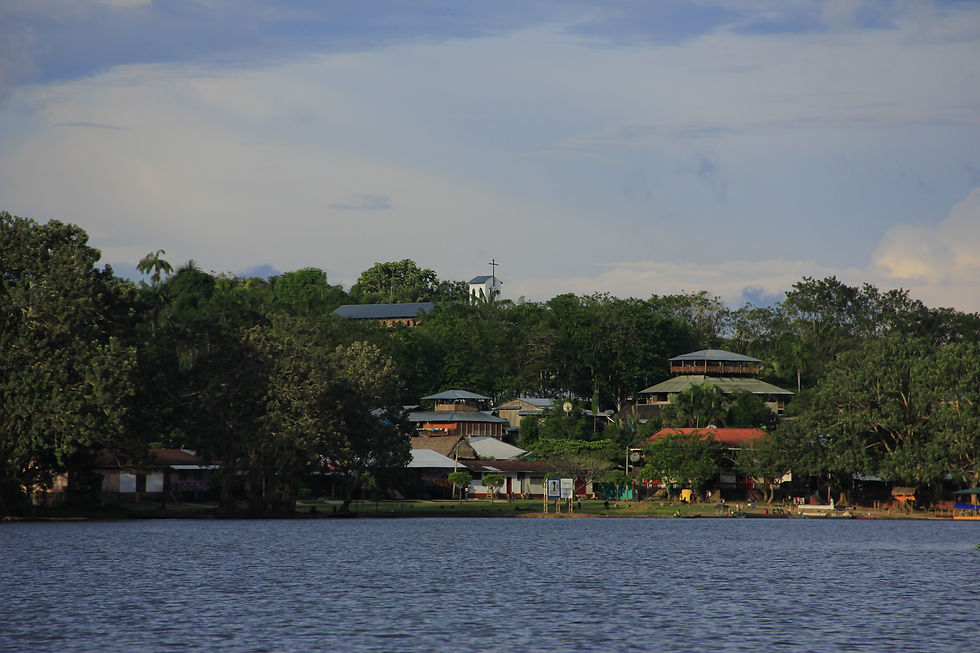Policy Brief | Local Communities and the Voluntary Carbon Market in Latin America and the Caribbean
- CCAP

- Nov 28, 2023
- 3 min read
Lessons learned for the transparent implementation of Article 6 of the Paris Agreement
CCAP is pleased to announce the publication of the policy brief, Local Communities and the Voluntary Carbon Market in Latin America and the Caribbean. This project was funded by Euroclima and developed in collaboration with the Climate Ambition and Transparency team from the United Nations Environment Program’s (UNEP) Regional Office for Latin America and the Caribbean.

The brief focuses on the technical convergence of carbon markets, including the voluntary carbon market (VCM) and the cooperative mechanisms of Article 6 of the Paris Agreement in Latin America and the Caribbean (LAC). Its main objective is to understand the state of play of the VCM in the region, recognize the challenges in the relationship between VCM projects and local communities, identify the existing and most widely used social and environmental safeguard frameworks and to highlight the risks and challenges for Article 6 safeguards. Considering these objectives, the policy brief aims to identify lessons learned from the VCM and use them for the transparent and socially just implementation of Article 6.
Key Findings:
In LAC, 17 of 35 countries have registered projects that have emitted certified carbon, where the forestry category dominates through REDD+ and with afforestation/reforestation projects accounting for 78% of the projects studied.
The highest number of project types that have a direct relationship with local communities are classified as, “Forestry and Land Use” and “Household and Community.” The study shows that the leading countries with these types of regional projects includes Mexico, Colombia, Brazil and Peru.
The VCM offers a great opportunity for examining the relationship between carbon projects and local communities, including the study of their safeguard frameworks, which allows the reader to better understand lessons learned for Article 6. For this, six safeguard frameworks established by certification programs, standards or methodologies were analyzed, including Verra's VCS and CCB standards, Gold Standard, CERCarbono, CAR's Mexico Forest Protocol and BioCarbon.

The social and environmental safeguard frameworks established by the most widely used certification programs and methodologies in the region show significant divergences in terms of quantity, depth of requirements, tools and application in practice.
Improving the participation and involvement of state entities in the implementation of VCM projects is key. It is noted that the lack of government oversight can increase the risks of rights violations and unfair deals.
Strengthening and improving the relationship between VCM projects and local communities in LAC is a priority. Ineffective community consultation and socialization processes have been identified, as well as the vulnerability of community rights and unfavorable agreements for communities.
Under the decisions and annexes of Article 6 of the Paris Agreement, it is mentioned that social and environmental safeguards must be taken into account. However, there is no direct guidance on which safeguards will be used as a basis for development in each mechanism, how they will be implemented and whether there will be a differentiation between safeguards depending on the type of activity, sector or methodology.

This research aspires to generate inputs and information on the challenges in the relationship between carbon projects and local communities. It proposes recommendations to protect community rights and environmental integrity, while improving the well-being for these communities by identifying direct relationships between projects and communities and proposing measures to maximize their benefits. In addition, it aims to contribute to the creation and improvement of standards and the development of binding mechanisms for compliance with social and environmental safeguards. Finally, the research contributes to the creation of an information repository to strengthen transparency in the project landscape and carbon credit transfers.
Stay Connected
There are numerous ways to stay connected with CCAP. Follow us on Twitter @CCAPolicy and on Facebook & LinkedIn.
CCAP’s mission is to support every step of climate action, from ambition to implementation. A recognized world leader in climate policy and action, CCAP creates innovative, replicable climate solutions, strengthens capacities, and promotes best practices across the local, national, and international levels to accelerate the transition to a net-zero, climate resilient future. CCAP was founded in 1985 and is based in Washington, DC.






شيخ روحاني
رقم شيخ روحاني
الشيخ الروحاني
الشيخ الروحاني
شيخ روحاني سعودي
رقم شيخ روحاني
شيخ روحاني مضمون
Berlinintim
Berlin Intim
جلب الحبيب
https://www.eljnoub.com/
https://hurenberlin.com/